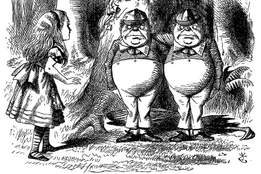plural haiku or haikus
: an unrhymed verse form of Japanese origin having in English three lines containing usually five, seven, and five syllables respectively
… with the declaration of war, I was not sure what the coming spring portended. So two weeks after Pearl Harbor, I wrote in haiku: Beyond mind's torment, / Reach out and grasp a sprig of / The flowering quince.— Toyo Suyemoto
Toyo Suyemoto
 Toyo Suyemoto
Toyo Suyemoto
also
: a poem in this form usually having a seasonal reference
I translate haiku in one line because most Japanese haiku writers, both standard and nonstandard, treat it as a one-line form and adjust its prosody accordingly. … It has long been a tradition to present haiku in non-Japanese languages as tercets… — Hiroaki Sato
Hiroaki Sato
 Hiroaki Sato
Hiroaki Sato [Tonya Foster] does not write fully traditional haiku (free-standing, improvisational, about the seasons). — Stephanie Burt
Stephanie Burt
 Stephanie Burt
Stephanie Burt Jacob Harris, senior software architect at The New York Times, has developed an algorithm to find accidental haikus in the paper, from the mundane: "The one thing to be / careful about is trimming / the broccoli rabe," to the poetic: "The buzzing of a / thousand bees in the tiny / curled pearl of an ear." — Annalisa Quinn
Annalisa Quinn
compare tanka
 Annalisa Quinn
Annalisa Quinn Note: A haiku is an unrhymed Japanese poetic form that in English usually consists of 17 syllables arranged in three lines containing five, seven, and five syllables, respectively. A haiku expresses much and suggests more in just a few words. The form first emerged in Japanese literature in the 17th century (though it did not become known by the name haiku until the 19th century) when Bashō, a Japanese poet considered by many to be the greatest practitioner of the form, elevated it to a highly refined art. A poem written in the haiku form or a modification of it in a language other than Japanese is also called a haiku. The Imagist poets of the early 20th century helped popularize the form in English.
Love words? Need even more definitions?
Merriam-Webster unabridged










Share